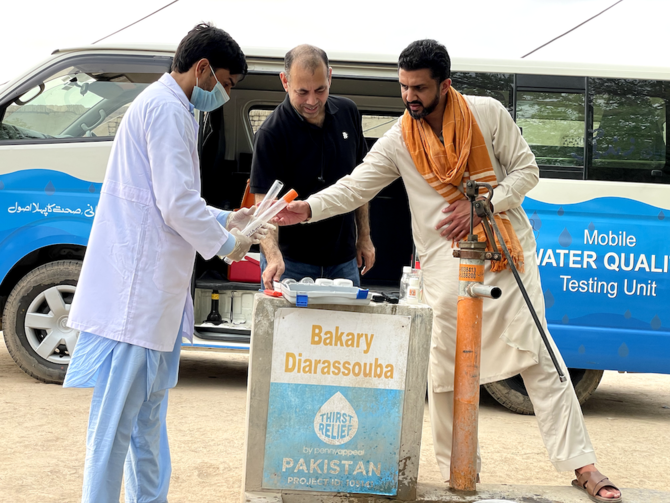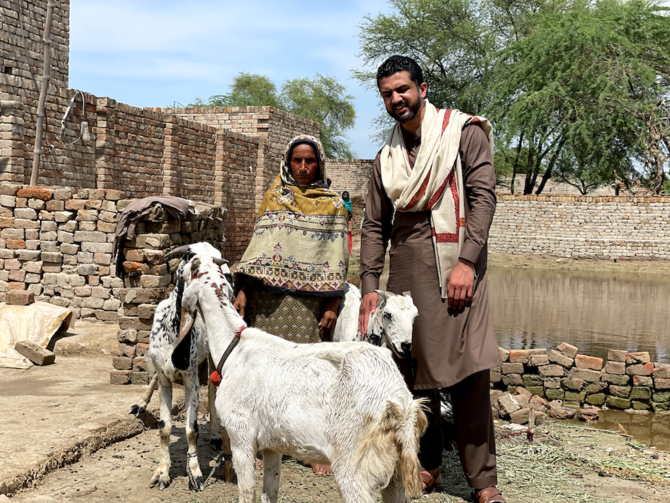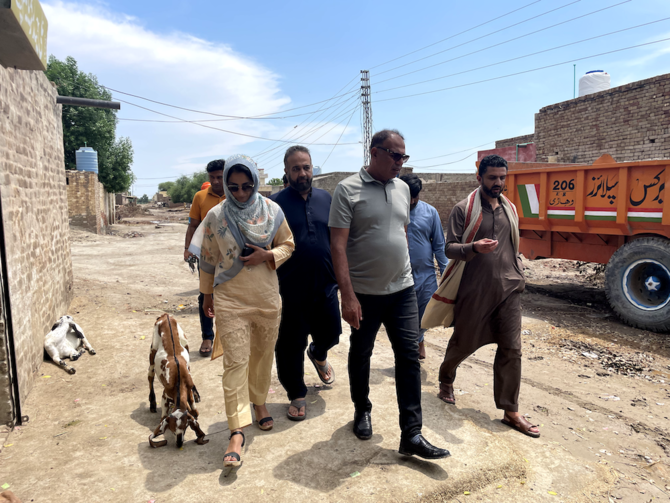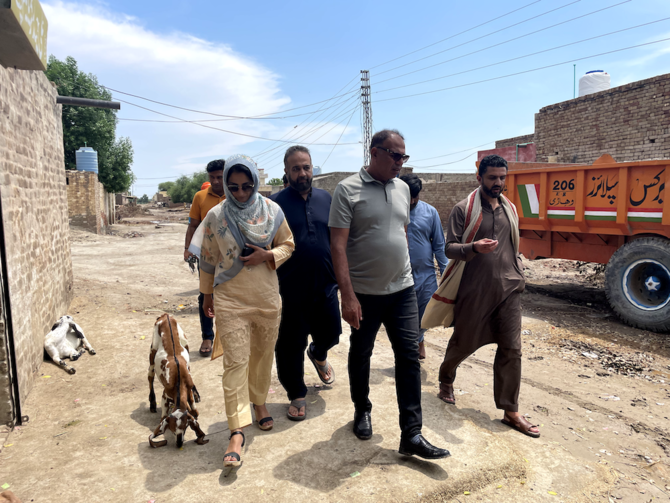LONDON: The founder of UK-based humanitarian charity Penny Appeal, Adeem Younis, visited Pakistan recently to monitor and evaluate some of the development projects funded by the organization across the country with the aim of providing a sustainable and empowering route out of poverty.
The charity said it funds a diverse portfolio of relief projects in the country, including water wells, hunger relief, eye surgery, care for the elderly, homes for orphans and a number of schools.
“Now in its 13th year, the charity has helped transform the lives of over 20 million people around the world and has worked in 60 countries,” Penny Appeal said.
“To date, the charity has distributed an estimated £9.7 million ($10.7 million) in aid across Pakistan and been instrumental in disaster relief, as well as launching income-generating projects to support women and children in need.”
Younis, who was joined by fellow trustees Mohammed Jahangir and Irfan Rajput, visited some of Penny Appeal’s ongoing projects serving vulnerable groups including children, orphans and the elderly. The charity said it prioritizes projects that have long-term, multiplying effects on the lives of beneficiaries.
“With cutting-edge water-waste management for example, through its network of 9,334 kitchen gardens, the charity produces the equivalent of 65,000 meals every single day,” according to Penny Appeal.
“This is in addition to 18,645 tube wells benefiting 216,020 individuals, 461 deep wells benefiting 105,200 individuals, and 27 solar-powered wells and power centers benefiting 32,600 individuals.”
“We all have a great love for Pakistan,” said Mohammed Jehangir, the charity’s chair of trustees. “There is so much beauty and so much potential, we all must play our part in helping lift our country up.
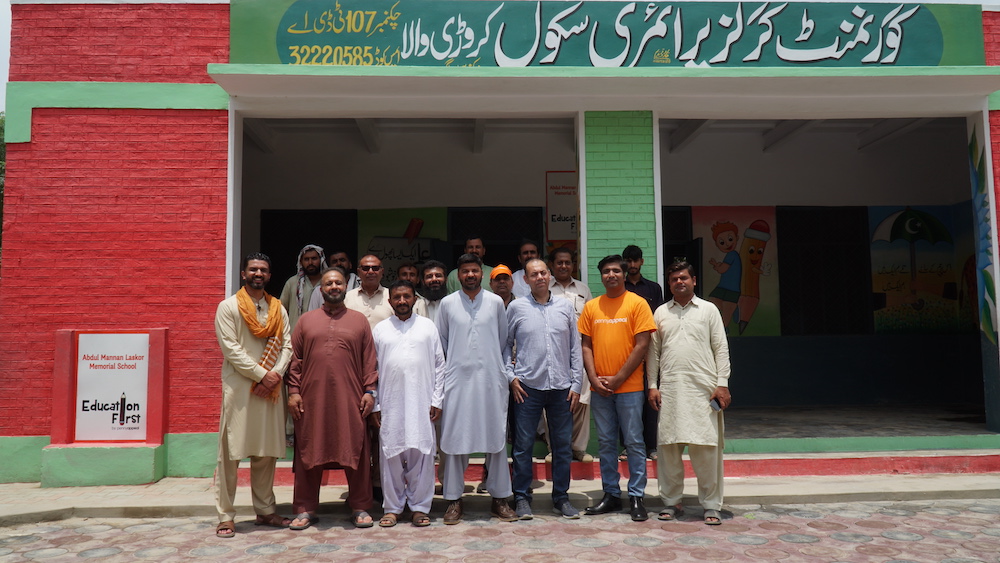
The charity said it funds a diverse portfolio of relief projects in the country and a number of schools. (Supplied/Penny Appeal)
“There is so much to do, no one person can do everything but we can all do something and this is the wonderful spirit of Penny Appeal, enabling everyone to play their part.”
The charity said that by focusing on sustainability, it has helped transform Zakat receivers into Zakat givers. In 2018, for example, it provided 168 pregnant goats to vulnerable families and widows in Vehari District, Punjab province, and four years later the number of goats has grown to 1,512. With the income, meat and milk the animals provide, Penny Appeal said, families who once struggled to feed their children are now able to support multiple families in addition to their own.
“As a child of this nation I’m very privileged to be asked to support Penny Appeal’s incredible work in Pakistan,” Rajput said.
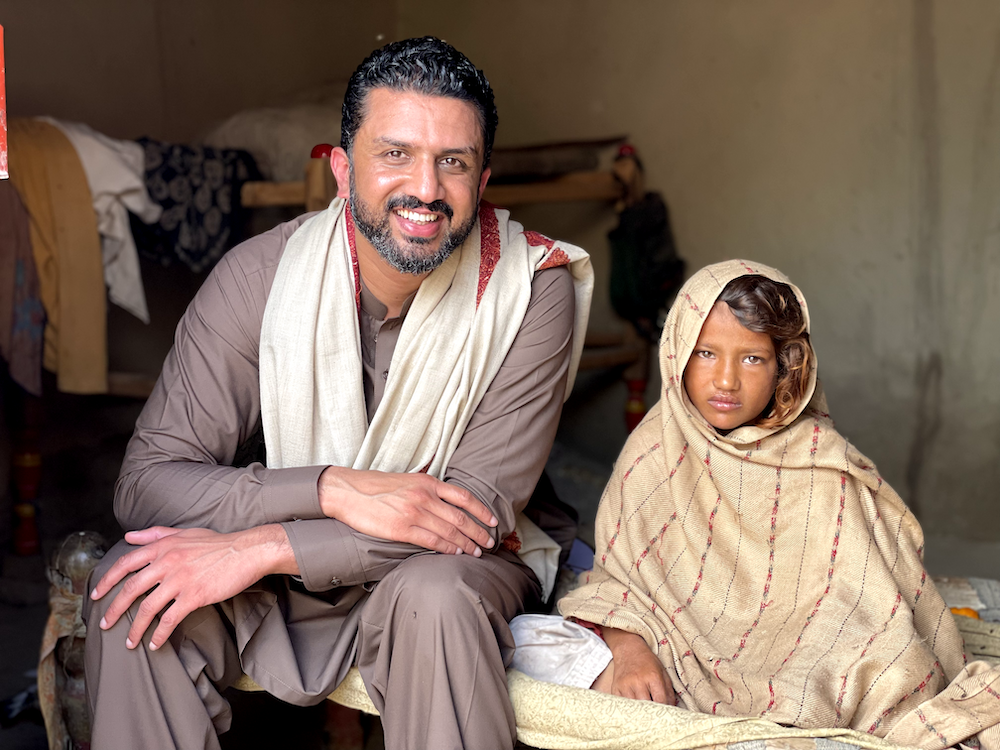
Adeem Younis visited some of Penny Appeal’s ongoing projects serving vulnerable groups including children, orphans and the elderly. (Supplied/Penny Appeal)
“The charity brings a wealth of expertise and experience, and its multi-pronged approach to sustainable development will help those in need not just lift themselves out of poverty but lift generations of Pakistanis out of poverty for good.”
The trustees also visited a few of the 31 mosques established by the charity, which serve 31,800 people. In addition to providing places of worship they are also used to provide about 6,700 children with a comprehensive Islamic education.
The charity began in Pakistan, Younis said, and “it’s here where we draw our inspiration to serve vulnerable people and communities all over the world … we want to help people not just escape poverty but become agents of change in their own communities.”


